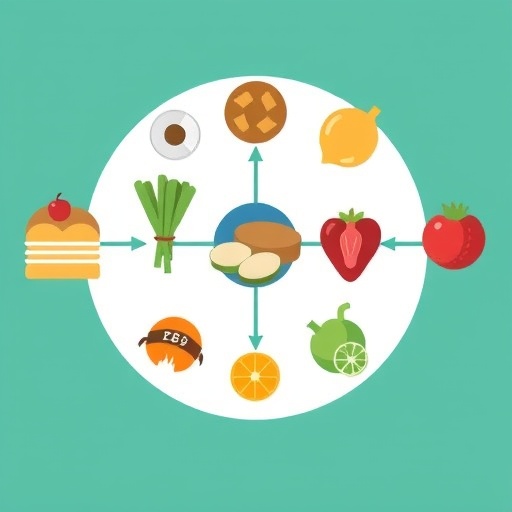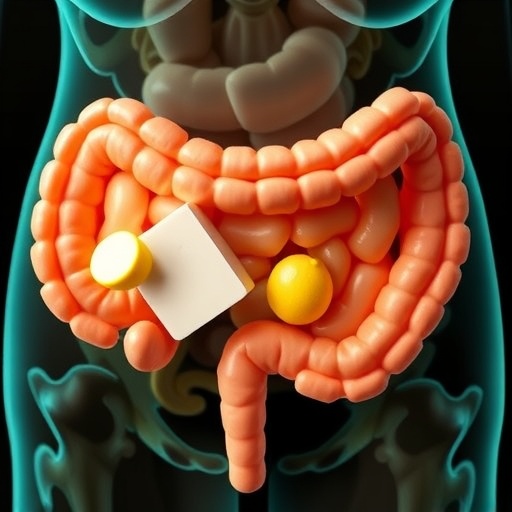
Polycystic ovary syndrome (PCOS) represents a multifaceted endocrine disorder that affects a significant portion of women worldwide. Recent explorations into the condition have highlighted how lifestyle choicesâspecifically dietary habitsâinteract intricately with this syndrome. A groundbreaking case-control study led by researchers, including F. Vaziri Esfarjani, P. Dorfeshan, and A. Mansouri, delves into the correlation between dietary inflammatory indices and the prevalence of PCOS, revealing significant implications for dietary interventions in managing this common reproductive health issue.
The essence of the study revolves around the dietary inflammatory index (DII), a tool designed to estimate the inflammatory potential of entire diets. It offers a nuanced perspective on how various food components may either exacerbate or alleviate inflammation within the body, an aspect crucial in a condition characterized by low-grade inflammation like PCOS. Given the alarming rates of PCOS diagnoses, understanding dietary impacts could lead to effective management strategies that could either mitigate or even reverse some of its adverse symptoms.
In examining the relationship between dietary factors and PCOS, the researchers employed a case-control methodology, enabling a thorough comparison between women diagnosed with PCOS and a matched control group. This approach not only ensured a robust measure of dietary inflammation scores but also allowed the researchers to factor in various empirical dietary patterns that might contribute to inflammatory responses in individuals with PCOS. Such meticulous methodology underscores the study’s credibility and the potential for its findings to influence broader dietary guidelines.
The findings from this study revealed that women with PCOS exhibited significantly higher dietary inflammatory index scores compared to their non-PCOS counterparts. This consistent pattern suggests that the quality of dietary choices plays a critical role in the manifestation and severity of PCOS symptoms. It also raises questions about the broader implications of inflammation on reproductive health, urging scholars and practitioners alike to reconsider dietary education as a pivotal component of PCOS management.
To add depth to the investigation, the authors included lifestyle considerations that encompass physical activity and stress levels, exploring how these factors interlink with dietary habits. The combined effect of lifestyle and dietary factors further complicates the landscape of PCOS but simultaneously presents opportunities for integrated approaches to treatment. By addressing inflammation through diet and lifestyle adjustments, there is potential for a significant reduction in the negative health outcomes associated with PCOS.
On a molecular level, the study discusses how certain dietary components may alter hormonal balances, which is particularly pertinent when considering the symptoms of PCOS, including irregular menstrual cycles and insulin resistance. The inflammatory markers associated with these dietary patterns could be pivotal in either fostering or hindering reproductive health, emphasizing the urgency behind these findings.
The introduction of empirical dietary patterns further enriches the analysis, offering a comprehensive view of how real-world eating habits can be assessed. By classifying diets into defined patterns, the study not only simplifies the understanding of dietary impacts on health but also paves the way for future research to build on these classifications for targeted dietary interventions in PCOS management.
Moreover, this research has implications beyond individual health, posing questions about public health interventions aimed at reducing the prevalence of PCOS. Improving dietary education at various community levels could serve to empower women with PCOS and enhance their quality of life. Local dietary workshops and initiatives that promote anti-inflammatory diets could resonate widely, translating the findings of this pivotal study into actionable societal change.
While the study highlights significant correlations, it also acknowledges the complexities surrounding dietary habits and individual responses to food intake. Not all women with PCOS will respond similarly to dietary interventions, emphasizing the need for personalized approaches that consider unique metabolic responses. Such considerations can inform both clinicians and patients on the importance of tailored dietary strategies for effective management.
Yet, while the link between dietary inflammation and PCOS appears potentially robust, more research is warranted to further dissect these connections. Longitudinal studies may provide clearer insights into how dietary changes can lead to long-term benefits for women living with PCOS. Ideally, consolidating these findings into clinical practice may revolutionize the way PCOS is approached and treated, moving away from solely symptomatic treatments towards comprehensive lifestyle modifications.
As public awareness surrounding PCOS grows, fueled by studies like this, it becomes increasingly vital for medical professionals to stay abreast of the evolving research landscape. As more information becomes available, it fosters a greater collective understanding, potentially leading to improved outcomes for countless women affected by PCOS and related health issues.
In conclusion, the pivotal study conducted by Vaziri Esfarjani, Dorfeshan, and Mansouri suggests a strong link between dietary patterns characterized by inflammation and the clinical manifestations of PCOS. It raises critical questions about dietary education’s role and the broader implications of inflammation on reproductive health. As ongoing research unfolds, the hope remains that these findings can lead to practical solutions that enhance the quality of life for women grappling with this pervasive disorder.
Subject of Research: Association between dietary inflammatory index, dietary patterns, and polycystic ovary syndrome.
Article Title: Association between dietary inflammatory index, empirical dietary inflammatory patterns, dietary and lifestyle inflammation scores, and polycystic ovary syndrome: a case-control study.
Article References:
Vaziri Esfarjani, F., Dorfeshan, P., Mansouri, A. et al. Association between dietary inflammatory index, empirical dietary inflammatory patterns, dietary and lifestyle inflammation scores, and polycystic ovary syndrome: a case-control study.
BMC Endocr Disord 25, 202 (2025). https://doi.org/10.1186/s12902-025-02022-y
Image Credits: AI Generated
DOI: 10.1186/s12902-025-02022-y
Keywords: Polycystic Ovary Syndrome, Dietary Inflammatory Index, Inflammation, Dietary Patterns, Lifestyle.
Tags: case-control study on PCOSdietary habits and PCOSdietary inflammatory index applicationdietary interventions for PCOSimpact of diet on inflammationinflammation and reproductive healthinflammatory potential of dietslifestyle choices and PCOSmanaging PCOS with nutritionpolycystic ovary syndrome managementunderstanding PCOS symptoms and dietwomen’s health and PCOS




